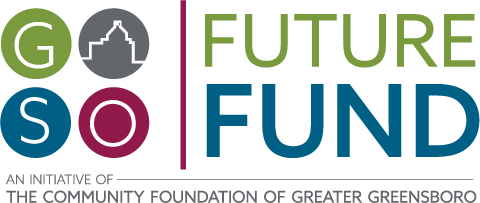email me
Meet Michael Robinson
NCCJ of the Piedmont Triad
“Connection, compassion, community”
How did your organization start?
NCCJ has been active in this community since 1937, however, 0ur roots go back another ten years; In 1927, a diverse group of faith leaders and social activists formed the National Conference of Christians and Jews (NCCJ for short) in response to the wave of anti-Catholic sentiment in response to Al Smith's presidential campaign. This group included renowned activist and reformer Jane Addams and U.S. Supreme Court Justice Charles Evans Hughes. They hoped to counteract this prejudice by bringing people of different faiths together to talk, share, and figure out a way to bridge their divisions and build positive interfaith relationships.
While our original goal of building a more compassionate, just community through respectful dialogue has remained the same. NCCJ has evolved to meet the challenges of each new era, expanding our focus to include issues of race, class, gender equity, sexual orientation, gender identity, and the rights of people with different abilities.
What issue are you addressing?
Our community’s growing diversity calls for strategies to overcome the prejudice and discrimination that comes with a lack of understanding of different cultures. For more than 80 years, NCCJ has been a strong leader in this area. We specialize in building inclusive environments that allow people from diverse backgrounds to work together respectfully and effectively.
We seek to build compassionate and just communities free of bias, bigotry, and racism. We promote understanding and respect among all cultures, races, and religions through education, dialogue, and advocacy. Our vision for the future is that every community becomes a place of promise, with opportunity and justice for all.
Where did your passion for this cause come from?
Sharing perspectives and experiences has always been important to me. Most of my life I was an outlier, the Black kid in the mostly white spaces. I carried with me a lot of pressure to “prove” myself amongst my white counterparts, while being constantly reminded that there were some experiences that I was having because I was Black that most of them simply couldn’t relate to.
Then in college, I attended a diversity and inclusion conference and was struck by the ability of one presenter to help people grow their awareness and give them strategies to deepen their understanding of the world, themselves, and others. I realized that I wanted to be doing what they did. And in my role as NCCJ’s Program Director, that’s exactly the type of work I’m doing. My passion fits NCCJ’s mission perfectly.
Why is your work so important for Greensboro?
Greensboro is an incredibly diverse city, which is wonderful. But diversity without inclusion and equity can lead to a lot of miscommunication, misunderstanding, and pain.
Through our youth programs like Anytown, Anyday, and STARR: Students Talking About Race and Racism, my colleagues at NCCJ and I are helping teens recognize their own biases and break the cycles of stereotyping and discrimination that can be so harmful to their mental health – and even lead to violence. We approach our work with adults in a similar way, helping people build more open and compassionate relationships with colleagues and neighbors.
In short, we help people form communities based on inclusivity and respect – not just when they’re in one of NCCJ’s workshops, but wherever they go. We’re working with people of all ages (from teens to grandparents) and from all across Greensboro.
What are you most excited for as it relates to FF10?
Connecting with others who are doing great work to build a more equitable system and sustainable existence for all community members. Being exposed to the amazing efforts underway across our great city have been inspiring.
What have you already learned from the process?
I have learned that we all have a place in making our community more united and stronger and that the role we play is in support of efforts being made that we may not be aware of to heal and transform our community. We may feel like we are working in isolation, but all our work is connected in some way, which is thrilling and comforting!
What do you hope to get out of FF10?
Deep stronger connections with those that are part of this years class and those of the past.

